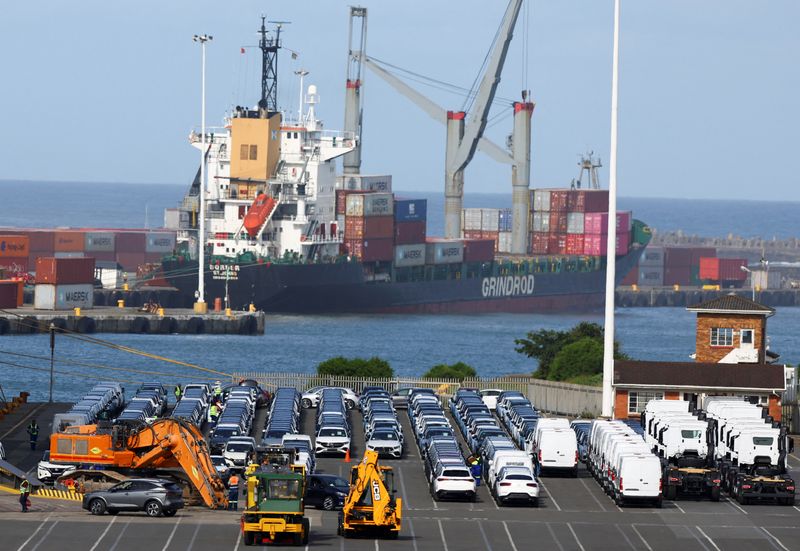
JOHANNESBURG (Reuters) – South Africa’s rand weakened early on Monday, ahead of a purchasing managers’ index (PMI) survey for the domestic manufacturing sector.
At 0620 GMT, the rand traded at 18.15 against the dollar, 0.64% softer than its previous close.
The Absa PMI for November is set to be released at 0900 GMT and will shed light on manufacturing conditions in Africa’s most industrialised economy.

Local investors will also turn their focus towards last month’s vehicle sales data later in the day.
South Africa’s benchmark 2030 government bond slipped in early deals, with the yield up 4.5 basis points to 8.96%.
This post is originally published on INVESTING.




